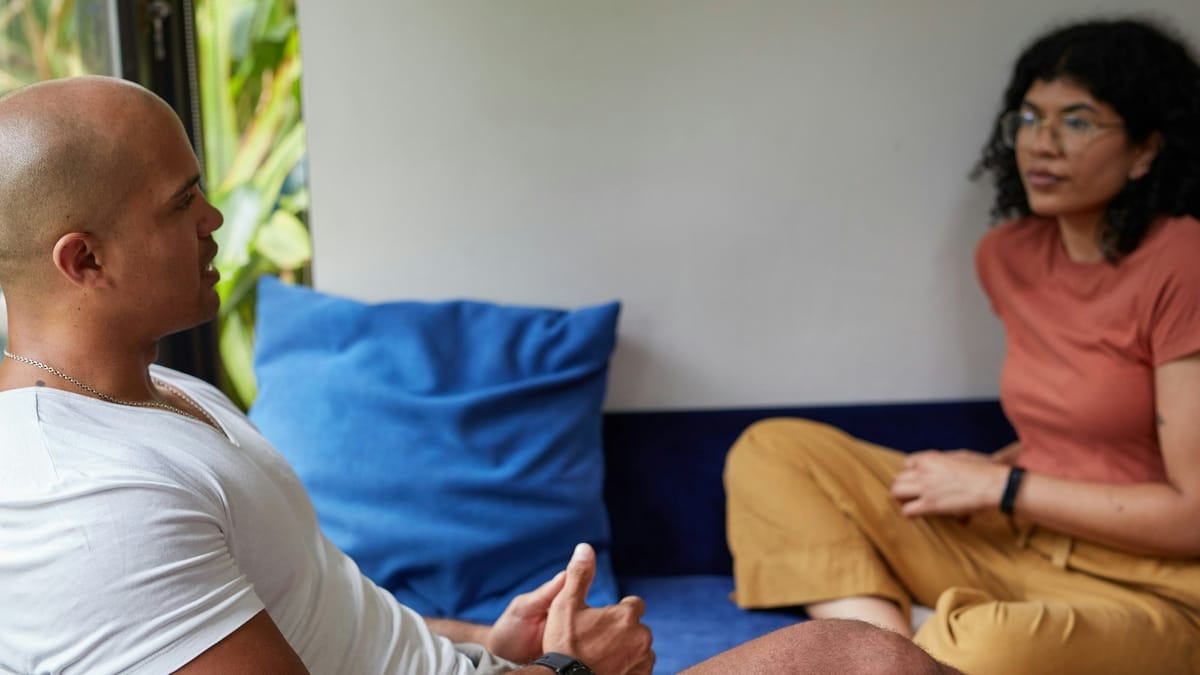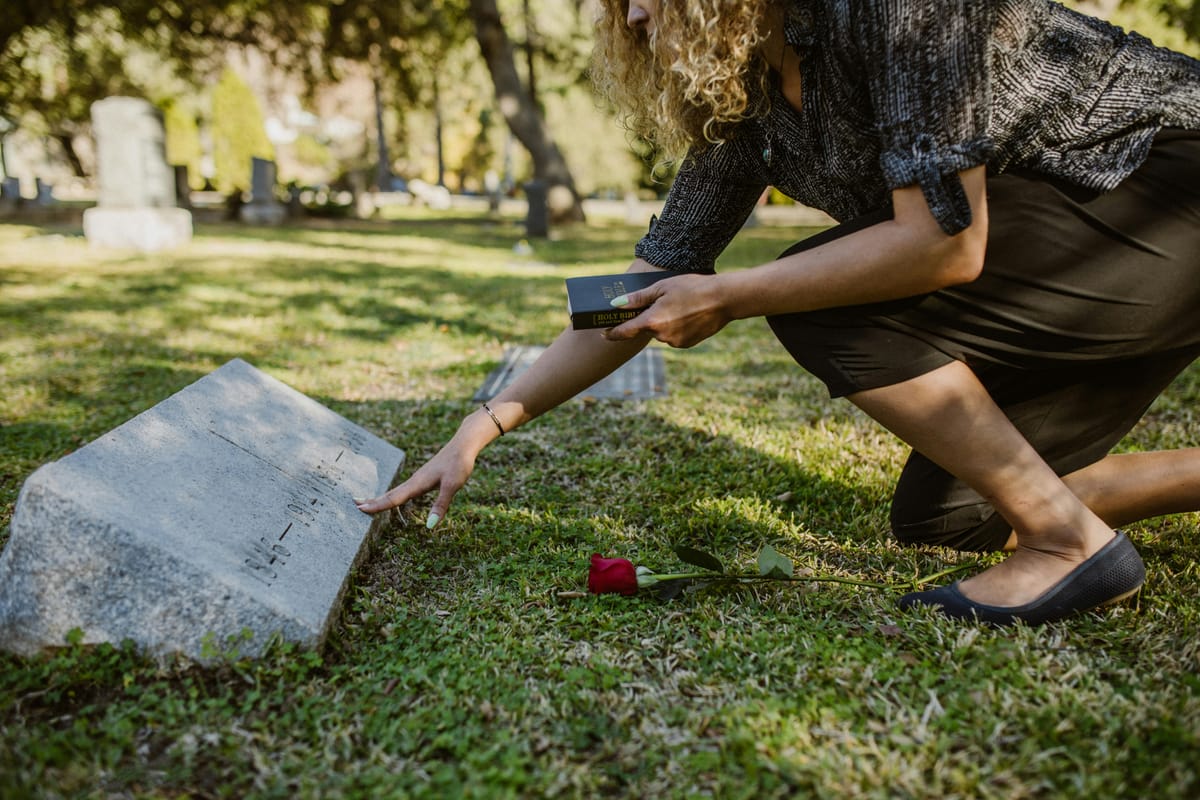Hospice Care: A Caregiver's Story of Faith and Family
In 2019, my parents needed help due to health issues. My retired husband, homeschooled son, and I moved in to assist. After losing my husband, it was just my son and me managing my parents' dementia. Hospice support has been invaluable.
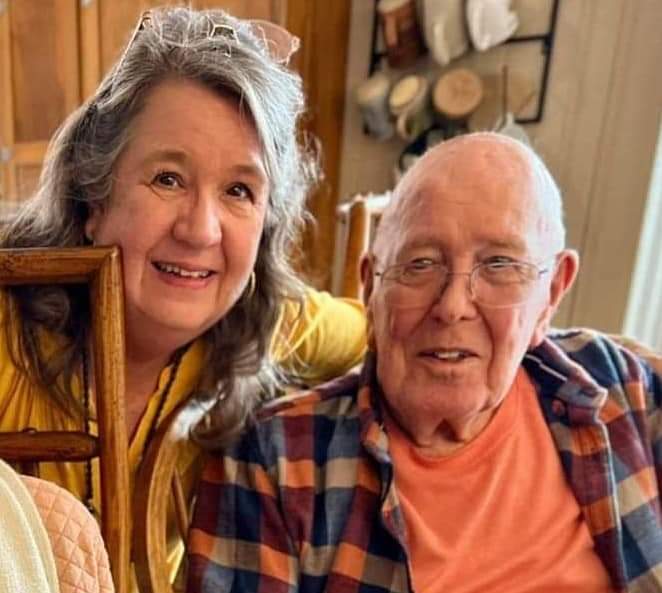
Written by Colleen, a wife, mother and family caregiver
In 2019, my parent's neighbor (and their best friends) called to tell me that it looked like my parents could use some help. The neighbor was a retired nurse and had been taking my mom to a neurologist where dementia was confirmed. My dad had heart disease and COPD. My retired husband and 14 yr old son, whom we homeschooling, started making a once a month, 4 hr trip to access the situation. We were debt free and decided we could move in with them to help. They had a big enough home that we could all live there comfortably.
It started with just monitoring finances and doctor appts, preparing meals, my husband taking care of home maintenance and the yard. Then, COVID hit and I lost my husband. Now it was all on me and a teenage son. Mom's dementia was getting worse and dad was now diagnosed with dementia also. He was becoming increasingly irresponsible will bill paying and subject to being scammed online and over the phone. I had to take over everything and could no longer properly homeschool my son..so he headed to public school for the first time and did amazingly well to the credit of a great support system of our church and the teachers and coaches at the school.
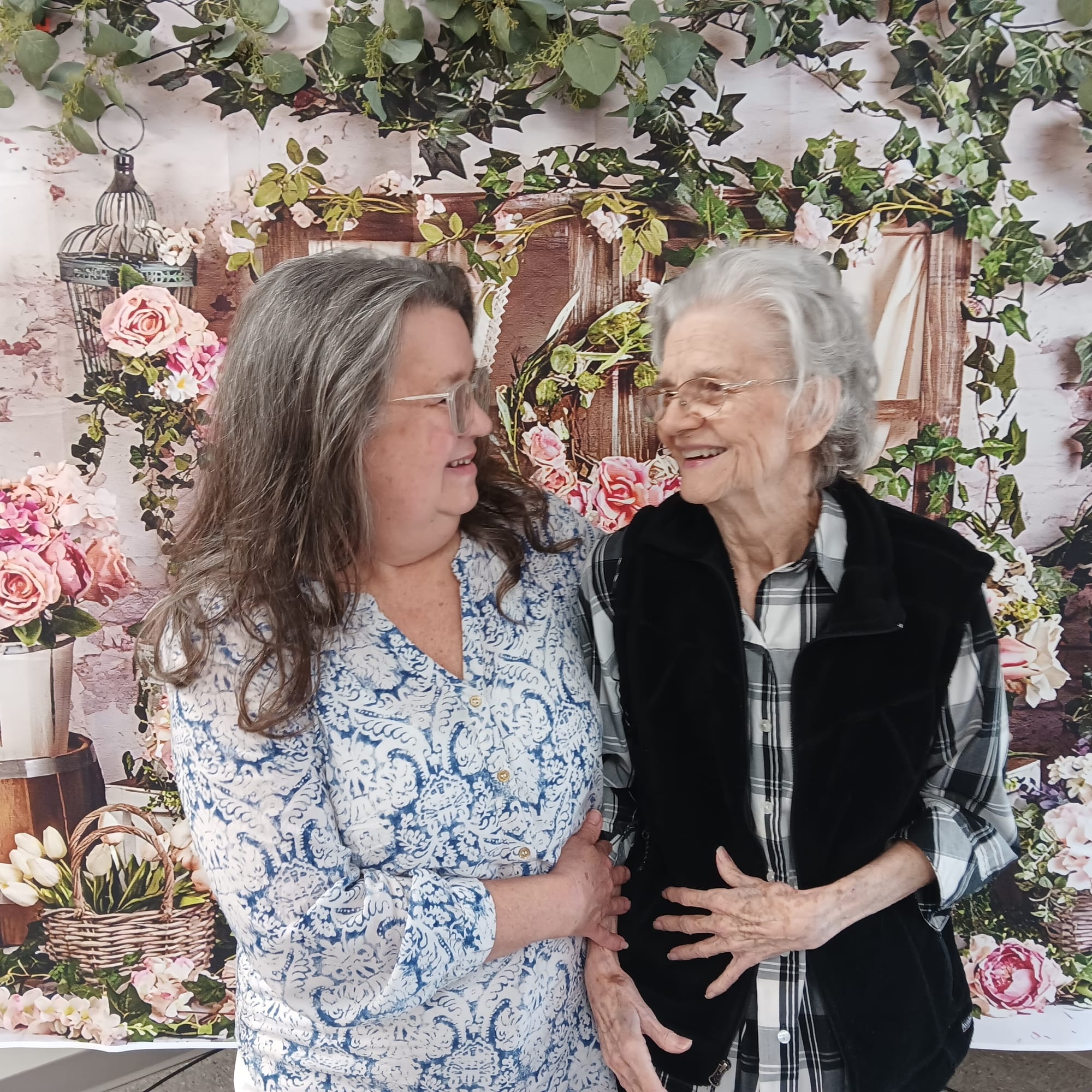
Dad was getting where I could not trust him taking care of Mom's needs now and I discovered that Hospice could help me even in these early stages. It took the pressure off in the areas of no longer having to take them to numerous doctor appts. An aide came in twice a week to help with bathing them. I have the support of a social working, nurses, chaplain. Incontenience supplies provided and the biggest help to me...Respite care.
Dad passed away February of this year (2024). ( Heart Attack) That made things harder as he was a 2nd pair of eyes helping me watch mom. She suddenly would not sleep thru the night, getting up and wandering around the house. Hospice provided meds that make her sleep thru the night. I bought a pressure mat that alarms me when she gets out bed. Monitors to watch her. Gates to Block the stairs. ( My son and I reside downstairs in the basement area that is like an apartment.)
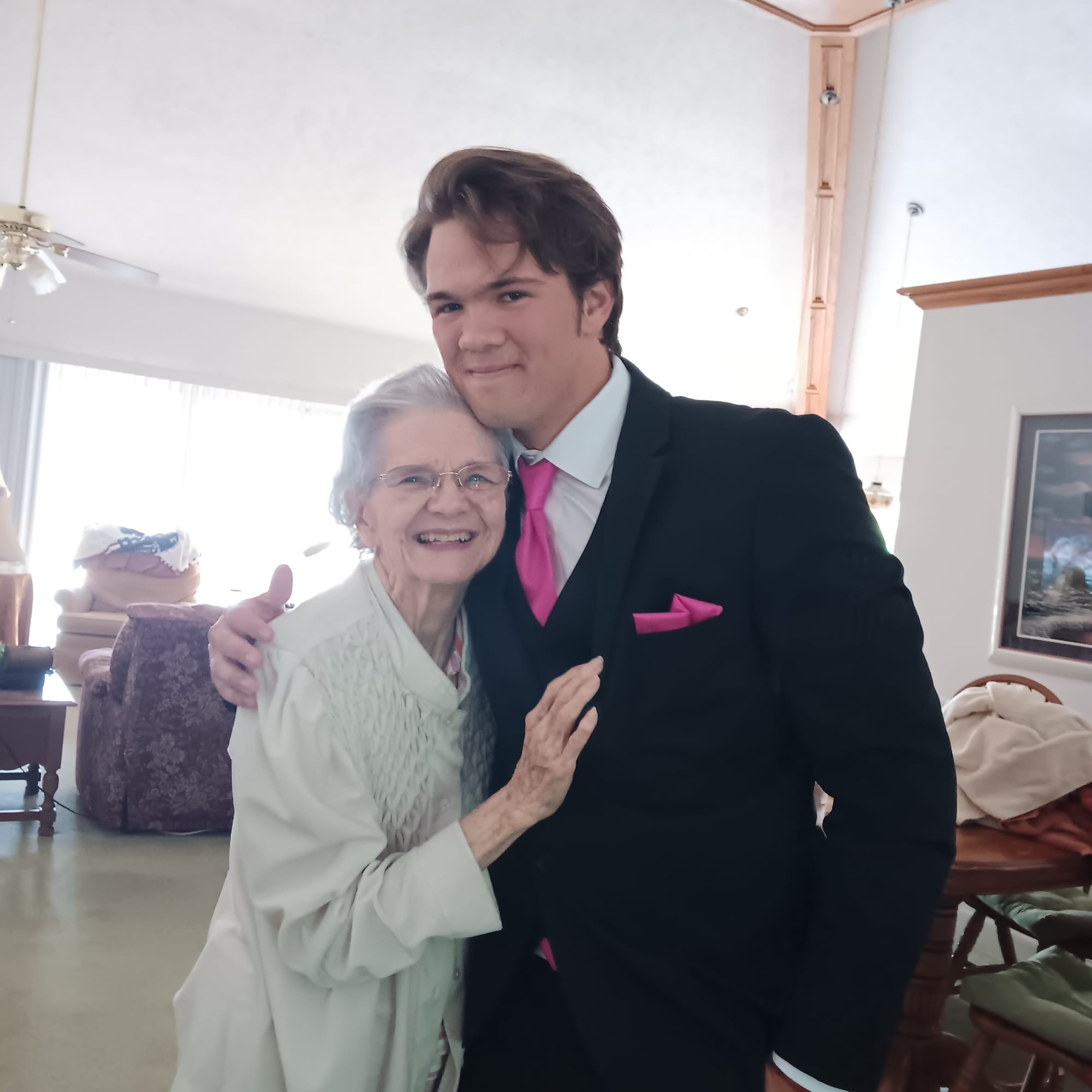
This coming fall will mark 5 years of us living with them. My son is going into his Senior year of high school. Our future plans are to sell moms house and move back home after my son graduates, where I have adult children who can help me continue this journey to the end.
I couldn't have gotten this far without my faith and church family and the Hospice team.
Dear Colleen,
Your journey is a testament to the power of faith and resilience. Facing the immense challenge of caring for your parents while grieving the loss of your husband must have been incredibly difficult, yet you have shown extraordinary strength. Your story is an inspiration to all caregivers, highlighting the importance of leaning on faith and community support during the toughest times.
Your ability to juggle so many responsibilities and find solace in your faith is truly admirable. Your son’s success in public school is a shining example of the positive impact of a loving and supportive family environment. It's heartwarming to hear how your church and hospice team have been pillars of strength for you.
Remember, you are never alone. Faith not only sustains us but also connects us to others who can offer support and understanding. Your courage in sharing your story brings hope to others who may be navigating similar paths. As you plan to move back home, may you continue to find peace and strength in your faith, and may your journey be blessed with love and support every step of the way.
FAQ for "Hospice Care: A Caregiver's Story of Faith and Family"
What is hospice care?
Hospice care focuses on providing comfort and support to individuals with a terminal illness, focusing on quality of life rather than curative treatment. It is designed for patients with a life expectancy of six months or less.
How does the hospice team support patients and families?
The hospice team includes hospice doctors, nurses, social workers, home health aides, and trained volunteers who provide medical care, emotional support, and respite care for family caregivers, ensuring patients receive end-of-life care with dignity.
What are the main services provided by hospice care?
Hospice services include pain relief, symptom management, emotional and spiritual support, medical supplies, and day-to-day care provided by a dedicated hospice team, including palliative care to enhance comfort.
What is the difference between hospice and palliative care?
Both hospice and palliative care focus on improving quality of life, but palliative care can be provided at any stage of a serious illness. Hospice care is specifically for those nearing the end of life, with a focus on comfort rather than cure.
How does hospice care provide emotional support?
Hospice care offers emotional and spiritual support to both patients and family members through counseling, grief support, and bereavement services, helping families navigate the emotional challenges of end-of-life care.
When should we begin hospice care?
Hospice care typically begins when a patient is diagnosed with a terminal illness and has a life expectancy of six months or less, as determined by a hospice doctor or healthcare provider.
Can family caregivers receive respite care through hospice services?
Yes, respite care is available to give family caregivers temporary relief from their caregiving duties, allowing them to take a break while the hospice team provides care for their loved one.
What role does the hospice provider play in managing medical care?
The hospice provider manages medical care by focusing on pain relief, symptom management, and providing medical equipment such as hospital beds, ensuring that the patient is comfortable and well-cared for at home.
Are hospice services covered by insurance?
Hospice care is often covered by Medicare, Medicaid, and private health insurance. The hospice provider can help families understand what is covered and assist with necessary paperwork.
What support is available for family members after a loved one passes?
Bereavement support and grief counseling are available for family members after a loved one’s death, helping them through the grieving process and offering emotional and spiritual guidance.
How can hospice care improve the quality of life for patients?
Hospice care focuses on enhancing the patient's comfort by managing symptoms, relieving pain, and providing emotional and spiritual support, allowing them to live their remaining days with dignity and peace.
Who can benefit from hospice services?
Patients with terminal illnesses, such as cancer, heart disease, lung disease, and other serious conditions, can benefit from hospice care. It is designed to provide support and comfort in the final stages of life.
What is the role of the hospice nurse?
The hospice nurse is responsible for day-to-day care, pain management, and ensuring the patient's medical needs are met. They provide compassionate support and guidance to both patients and their families.
Can hospice care be provided at home?
Yes, hospice care can be provided in the patient's home, nursing homes, or hospice facilities, depending on the patient's needs and preferences. The hospice team works to ensure comfort wherever the patient resides.
Does hospice care include spiritual support?
Yes, spiritual support is an essential part of hospice care, and chaplains or spiritual counselors are available to address the spiritual needs of both the patient and their family, offering comfort during this difficult time.
What is the role of a home health aide in hospice care?
Home health aides assist with day-to-day personal care, such as bathing, dressing, and feeding, ensuring the patient's comfort and maintaining dignity during the final stages of life.
What medical supplies are provided through hospice services?
Hospice care often provides necessary medical supplies such as hospital beds, oxygen, wheelchairs, and medications to manage symptoms and ensure the patient's comfort at home.
How does hospice care differ from curative treatment?
While curative treatment aims to eliminate or control a serious illness, hospice care focuses on symptom management, comfort, and quality of life when curative options are no longer viable.
How does hospice manage pain and other symptoms for terminally ill patients?
Hospice teams, including doctors and nurses, specialize in managing pain and other symptoms, such as nausea and difficulty breathing, to ensure the patient’s comfort during the final phase of life.
Does hospice care cover services for serious illnesses other than cancer?
Yes, hospice care is available for patients with a variety of serious illnesses, including heart failure, lung disease, and neurological conditions, as long as the illness is terminal with a life expectancy of six months or less.
How does the palliative care team support a patient’s quality of life?
The palliative care team focuses on improving the quality of life by addressing the patient’s physical, emotional, and spiritual needs, offering comprehensive support throughout their serious illness.
What role do social workers play in hospice care?
Hospice social workers provide emotional support, coordinate care plans, help with advance care planning, and connect families with resources such as respite care and grief support services.
What types of medical treatments are offered in hospice care?
Hospice focuses on symptom relief rather than aggressive medical treatments. Treatments may include pain management, respiratory therapies, and other non-curative methods to ensure the patient's comfort.
Can hospice care be provided in a nursing home?
Yes, hospice care can be delivered in nursing homes, allowing patients to receive end-of-life care in familiar environments while receiving specialized medical and emotional support from hospice professionals.
How can hospice services help with advance care planning?
Hospice teams assist patients and families with advance care planning by discussing the patient’s wishes regarding end-of-life care, ensuring these preferences are respected and documented throughout their care journey.
How did faith and family help during the end-of-life caregiving process?
Faith provided strength and comfort during the stressful ordeal of caregiving, offering hope and reassurance in difficult moments. Family supportive care was essential in making sure our loved one felt surrounded by love, while also giving caregivers the emotional strength to continue.
What role did hospice care play in the journey?
Hospice is a caring support system that helps families through the end-of-life process. With the assistance of a physician, nurse, aide, social worker, chaplain, and volunteers, we were able to provide quality of life and comfort for our loved one. The faith family hospice team helped us navigate the emotional, physical, and spiritual challenges of this journey.
What services did hospice provide?
Hospice care included:
- Palliative care to manage pain and discomfort
- Support from a social worker, chaplain, and volunteers
- Personal care assistance from a nurse aide
- Medical guidance from a physician and nursing team
- Emotional and spiritual support for both the patient and family
How does faith help caregivers cope with the loss of a loved one?
Faith provided peace and perspective, reminding us that love transcends physical presence. The hospice chaplain and social worker played a key role in helping us process grief and find strength through spirituality.
What made the hospice experience exceptional?
The exceptional hospice care we received was due to the uncompromising dedication of the hospice team. Their support ensured our loved one experienced dignity, comfort, and peace in their final days. Many families, including those of recent patients Jack and Dorothy C. and Ernest W., have shared their appreciation for the care provided.
Can hospice care support veterans?
Yes! A veteran support specialist can provide additional resources, ensuring veterans receive the care and recognition they deserve.
How can families prepare for end-of-life caregiving?
Families should seek support from faith, family, hospice staff, and professionals who can help guide them through the journey. Accepting help, leaning on loved ones, and trusting the expertise of a caring family-owned hospice can make this difficult time more manageable.
How can I express appreciation for hospice care?
Many families wish to express great appreciation for the care and support provided during their loved one's final days. Sharing stories, offering testimonials, and recognizing the efforts of the faith family hospice team helps honor their exceptional patient experience.
How can I get in touch with a hospice provider?
If you or a loved one are facing end-of-life care decisions, please contact us to learn more about how hospice can support your family during this time.
You might also like this article:
